‘The Crown’ Producer Andy Harries On His TV “Everest,” Standing By Peter Morgan’s Inventions & Asking Prince William If He’s Been Watching
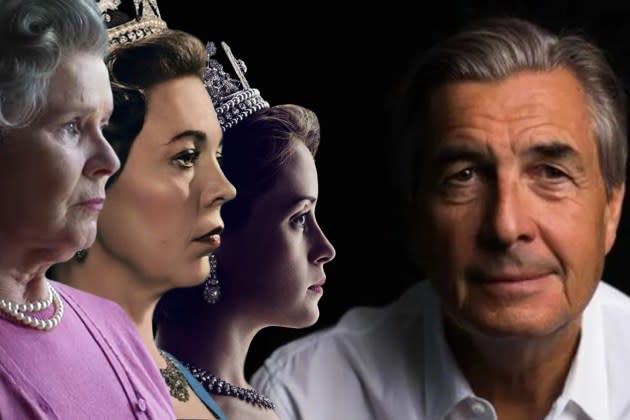
EXCLUSIVE: A persuasive argument can be made for The Crown being the jewel in British television’s very own crown, but it was so very nearly an uncut gem. A decade ago, this 60-hour showpiece was perilously close to being an idea filed under: nearly, but not quite. A passion project that lives in the great pantheon of unmade pitches.
The difference maker is not Peter Morgan and his sweeping vision to tell more than 70 years of British history through the eyes of a single woman. It is not the beguiling array of talent swooned by Morgan’s prose. Nor is it the deep pockets of a former DVD rental company that looks to have emerged victorious in the streaming wars.
More from Deadline
How 'The Crown's Final Episode Foreshadows Prince William & Harry's Bitter Feud
'The Crown' Queens Unite: Olivia Colman & Claire Foy Flank Imelda Staunton In Netflix Series' Finale
The difference maker is Andy Harries. Like all great producers, Harries is the consummate salesman. His story of how he shopped The Crown is now woven into British television folklore. It’s a tale this author has heard at least three times, but Harries still sparkles his way through it, building to the inevitable happy ending for his production company Left Bank Pictures.
The Crown was turned down by nearly every game in town. By Harries’ telling, the BBC and ITV passed for financial and political reasons. The BBC seriously considered the show, but Harries acknowledges it would have come with “all sorts of problems” for the UK’s national broadcaster because of The Crown’s readiness to confront the monarchy’s uncomfortable moments.
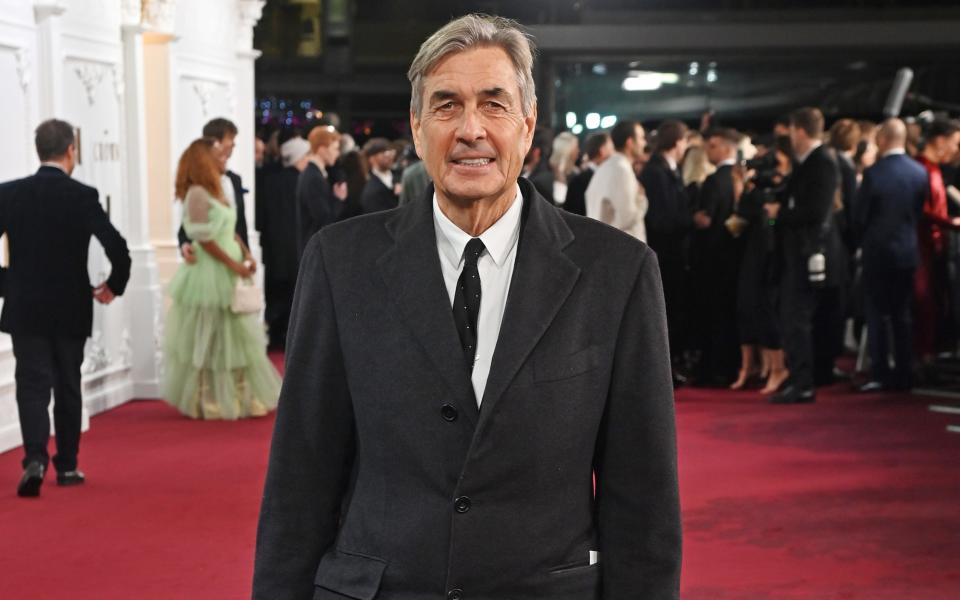
With nowhere to go at home, Harries flew to LA and met with all the major networks and cable operators, asking for the best part of $100M to turn Helen Mirren Oscar-winner The Queen into a series that would span eight years. They all scoffed at the plan, leaving Harries with one final option: Netflix. The streamer had just embarked on its voyage into originals, so Harries attended the meeting more in hope than expectation. His persistence finally paid off.
“Prior to the meeting with Netflix, which was the last meeting of that fateful week in LA, we got to the point that we felt that it wasn’t going to happen. It was a brilliant idea that was too ambitious and big,” Harries recalls. “It was a huge ask and a bit of a punt, but sometimes you are in the right place at the right time. Thankfully we were.”
Ten years on, Harries is not exactly modest when reflecting on The Crown’s achievements. “The Crown was, and will always be, one of the summits of peak TV. In the UK, we are the Everest,” the executive producer says without a flicker of self-doubt.
There is a mountain of evidence to back this boast. The show has collected 21 Emmy statues, five Golden Globes, and five BAFTAs. It has consistently featured in Netflix most-watched lists and can legitimately claim to have made Hollywood stars out of Vanessa Kirby, Josh O’Connor, and Emma Corrin.
The series has embroidered the resumes of directors, cinematographers, costume designers, make-up artists, and thousands more talented technicians. Sixty National Film and Television School graduates learned their craft on The Crown’s crew, while £1M ($1.3M) worth of props will be auctioned to fund scholarships at the school for the next 20 years. The show has also added zeros to the UK’s record-breaking £6.3B content factory.
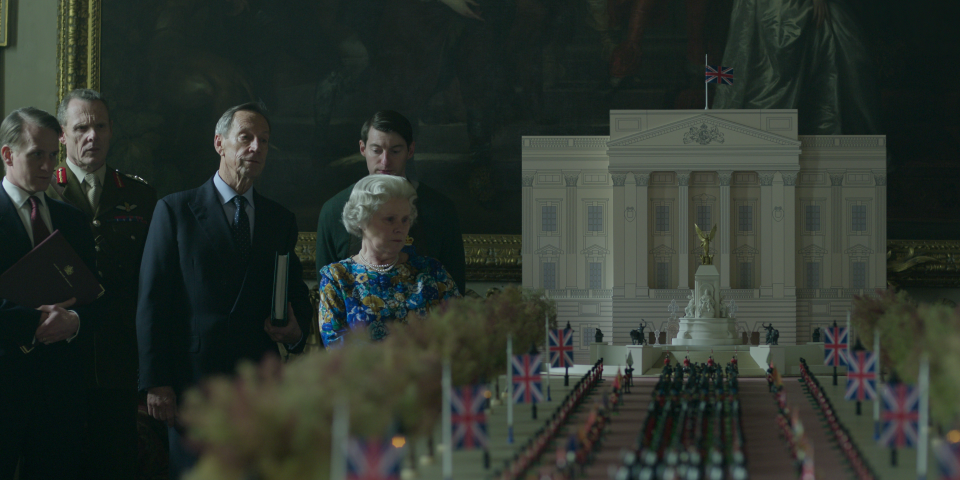
But more than this, Harries argues that The Crown has also enhanced the reputation of the monarchy itself. It is a statement that would have seemed unremarkable for Claire Foy’s years on the throne, when The Crown reached back 70 years to richly reimagine the life of an often inscrutable woman.
As The Crown has inched further along its timeline and closer into living memory, it has been dogged by controversy on British shores. Seasonal outcries over the show’s storylines have become so ingrained in press cycles that The Spectator wrote that moaning about The Crown had become a national pastime. Season 6 has felt particularly fraught as the drama has grappled with Princess Diana’s death, Prince William’s march into adulthood, and existential questions about the monarchy itself.
Harries compares The Crown’s reception in the UK to the Napoleon reviews in France, where Ridley Scott’s feature was reviled by critics. “There’s a sense of, ‘This is our story,’ and there is a particular interest in examining it hard and having strong opinions,” he says, accepting that the series has become “inevitably more complicated” as it has aged.
He explains: “Every series of The Crown has caused a reaction, that’s the nature of having a global success. That’s obviously been accompanied by a creep nearer and nearer to the present day. So yes, the temperature has gone up for all of us involved.”
The mercury certainly rose in 2020 when the British government demanded that Netflix add a “health warning” to the show declaring it to be a work of fiction. Netflix ultimately rebuffed the intervention from then culture secretary Oliver Dowden. “It seemed odd that was necessary,” Harries reflects on the row. “I was never of the view that everybody thought we had been tape-recording the royal family. People are aware that Peter [Morgan] has invented the dialogue, how can it be otherwise? So you watch it in that spirit. It’s a take. It’s a considered view of events as we have chosen to dramatize them.”
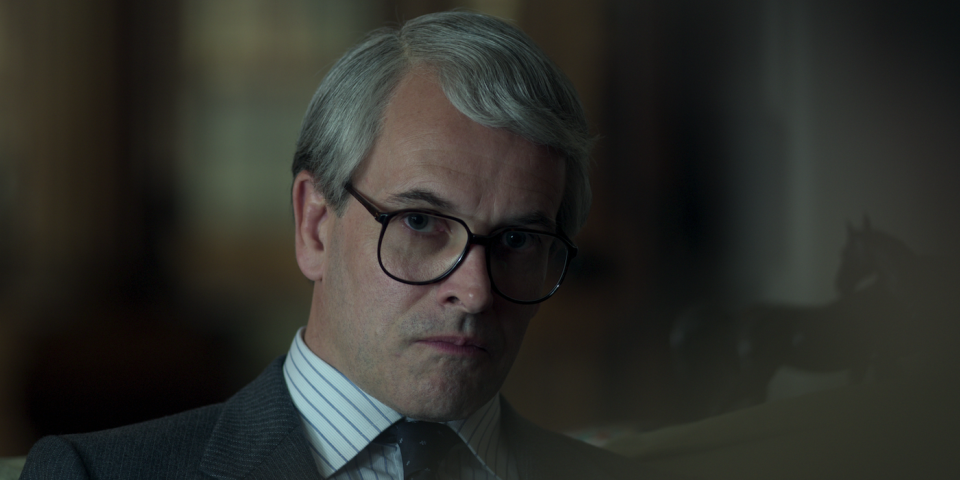
Another brush with the political establishment came last year when Sir John Major described the show as a “barrel-load of nonsense.” The former prime minister was angered by Morgan inventing a conversation in which Prince Charles lobbied Major about his mother’s abdication. Harries is convinced Major was told about the scene by a journalist before he saw the show. It resulted in Netflix holding back preview screeners for Season 6.
Harries bristles a little at the suggestion that The Crown has courted controversy. Season 6 entertains suggestions that Dodi Fayed proposed to Diana (there is little evidence for this) and evoked the late princess’ “ghost” (an infamous UK tabloid fascination) during scenes in which Prince Charles and the Queen reflect on her death.
“We’ve never been sensationalist. We’ve never dug into scandal. We’ve always tried to be appropriate and respectful,” Harries responds. “Much of what we believe happened is reflected in the scripts. This story is essentially 25 years old, that’s quite quite a long time ago. One can look back on that period and try and make some sense of it. That’s what we have done and I stand by our interpretation of events.”
Harries picks his words carefully at this juncture of our interview, joking that he’s “twisting and turning” in his chair and trying to avoid a “ghastly” headline. It’s not because he’s reluctant to engage with the issues. Indeed, Harries is known for being frank during such exchanges and does not always tread the line plotted by Netflix press handlers.
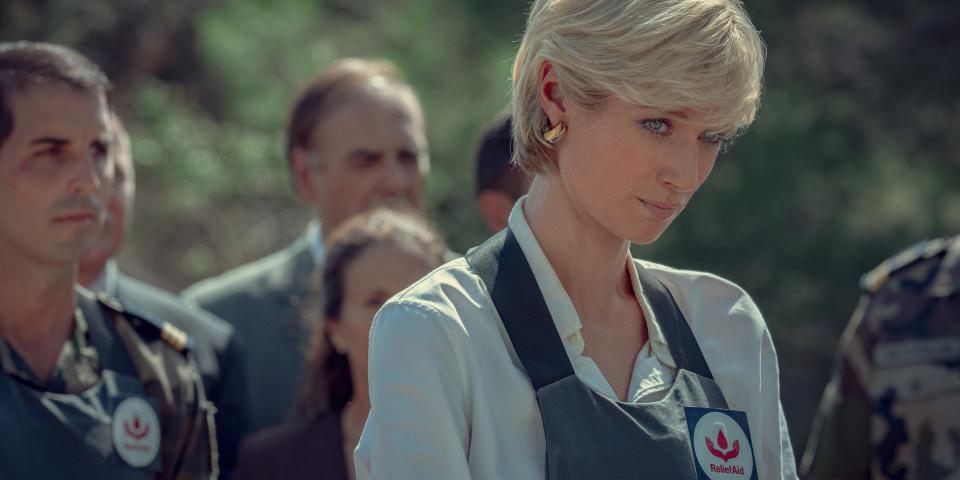
Ultimately, he can’t resist going on the offensive. “It’s a hell of a lot easier to criticize than create,” Harries says under some gentle pressure about the show’s portrayal of Diana. “I understand why people may not want to watch it, but I don’t think that’s a reason not to make it.”
He says that research done by The Crown’s team suggests that there is a “strong sense” in royal circles that show has got “way more right than wrong.” Harries supports this theory with a sprinkling of gossip. He has been told that Prince Harry advised Meghan Markle to watch the first two seasons of The Crown to help her understand the mechanics of the British monarchy. Harry has previously admitted to watching The Crown and has said the series gives a good sense of “putting duty and service above family and everything else.”
Prince William has not been so forthcoming about whether The Crown has been on his watchlist. Harries has a delicious story about broaching the subject with the future king as he was bestowed with his Order of the British Empire honor in 2019 — proof, if ever there was any, that the producer is not persona non grata at the palace.
“William said to me: ‘Oh, you produce The Crown.’ I said: ‘I do, sir, do you enjoy it? He said: ‘I’ve never watched.’ There was no answer to that,” Harries laughs. “Was he telling the truth, do you think? I reckon he’s had a little peep at it somewhere along the line.”
Get Harries reminiscing about his encounters with the royal family and he will also tell you how he had to dash between Helen Mirren’s Queen Elizabeth II and the real Queen when The Queen’s shoot coincided with an ITV event attended by Her Majesty. “A very surreal day,” he remembers.
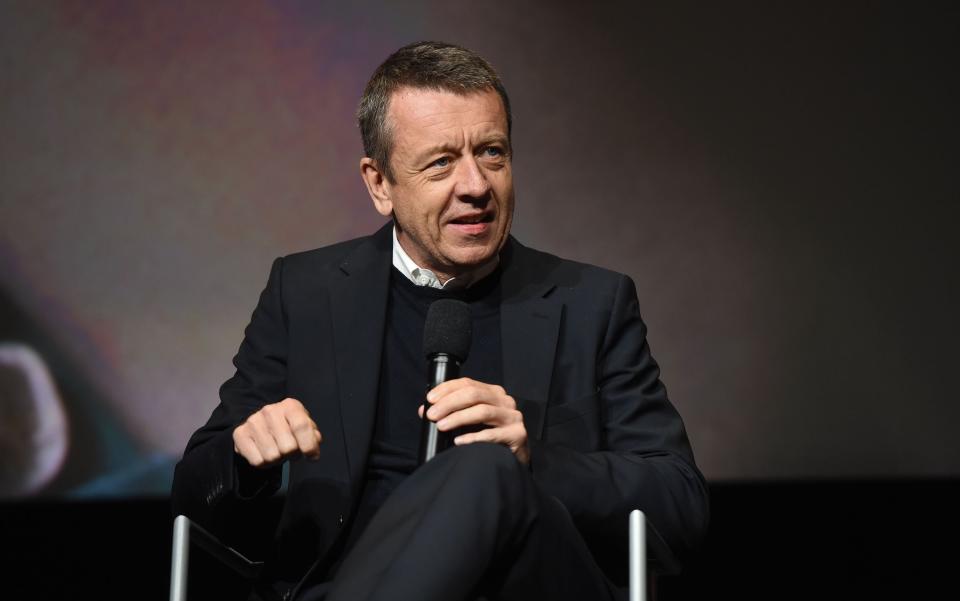
The memories reveal an affection for the royal family that has probably been necessary to carry Left Bank Pictures through a decade of dedication to The Crown. Morgan had one “wobble,” as Harries describes it, in 2020 when he decided to end the show a whole season early. Six months later, the writer changed his mind, and the original vision was reinstated.
What happened? “By and large, he has written or rewritten and is responsible for the final drafts of every single script. That’s 60 hours of television. At the point [he decided to do five seasons], we were 40 episodes in and he was finding it pretty hard work, pretty heavy pressure. Physically as well as mentally, it’s an enormous amount of work. He suddenly thought maybe he was running out of steam a bit.
“It’s also very difficult when you do so well, you have such impact, you win so many awards. This was another factor. You knew the only way is down. If you’re a football team or a music artist, you can’t stay at the top forever and a day. People get bored and turn against you.”
Morgan got a second wind. He said at the time that to “do justice to the richness and complexity” of the story, he had to revert to the original plan. It means that Season 6 takes time over its storytelling. The Crown’s moments of stillness and reflection are often its strength and this is no more apparent than in the final episode, when the Queen agonizes over a decision to abdicate the thrown. Imelda Staunton’s monarch is visited by apparitions of her younger self, with both Olivia Colman and Foy reprising the role to offer their wisdom.
Directed by the returning Stephen Daldry, the finale is among Harries’ favorite episodes, and its payoff is a shot in which Staunton is flanked by Colman and Foy as a lone piper plays Sleep, Dearie Sleep, the lament that rung out at the Queen’s actual funeral last year. It’s a fitting tribute to her record-breaking reign and Harries describes the body of work as a “contribution to the history of the UK.”
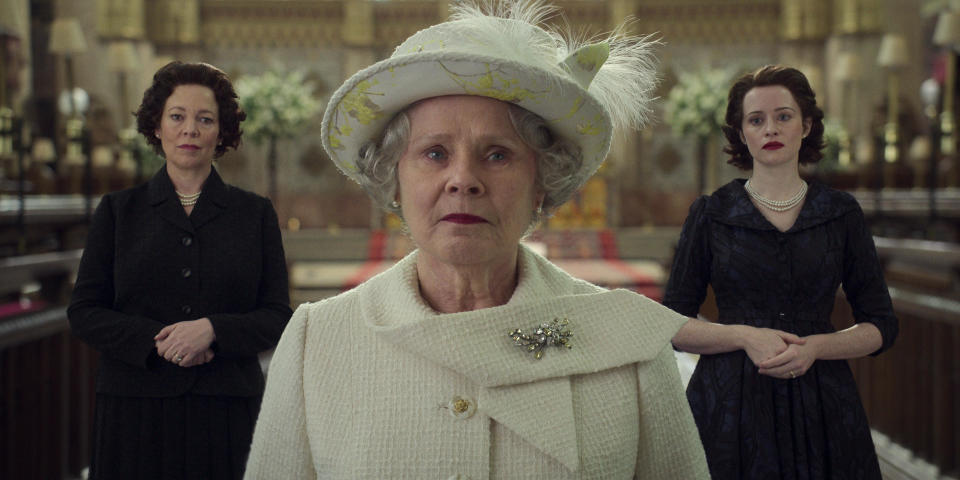
The Crown may be bidding farewell, but is there a part of Harries that looks at recent royal travails and thinks: wouldn’t that be fertile territory for the show? The short answer is no. He has not had his head turned by Prince Harry’s split from the family or Prince Andrew’s humbling. Quite the opposite. Harries sees little value in rehashing the past 20 years of royal history and is pretty skeptical about the recent wave of “fire engine” shows that are chasing recent history for ratings.
This includes the two Prince Andrew Newsnight interview dramas in the works at Amazon and Netflix, the former starring Michael Sheen and the latter Rufus Sewell. “I don’t see the point,” he observes sharply. “The actual reality was extraordinary and remains very vivid. I’m not sure what you gain from dramatizing it unless you provide real insight.”
Harries needs a break from his royal tour of duty, but he remains full of energy and is channeling his focus into two “really personal” projects that he is forbidden from discussing in our interview. He acknowledges that the heady days when Netflix can commit to six seasons of a lavish drama are over. “The gravy train of Netflix and all the streamers has pulled up at the station, but they’re going to continue. They just won’t have quite so many carriages,” he explains.
That’s not to say that The Crown won’t be re-hitched to the Netflix locomotive at some point in the future. Morgan has admitted that the seed of an idea has taken root that will involve traveling back in time, potentially to the death of Queen Victoria in 1901. “The Crown remains a great brand and it’s possible that Netflix and ourselves will want to look at it again,” Harries says.
The Crown is dead. Long live The Crown.
Best of Deadline
2023 Premiere Dates For New & Returning Series On Broadcast, Cable & Streaming
2023-24 Awards Season Calendar - Dates For Oscars, Emmys, Grammys, Tonys, Guilds & More
Sign up for Deadline's Newsletter. For the latest news, follow us on Facebook, Twitter, and Instagram.
